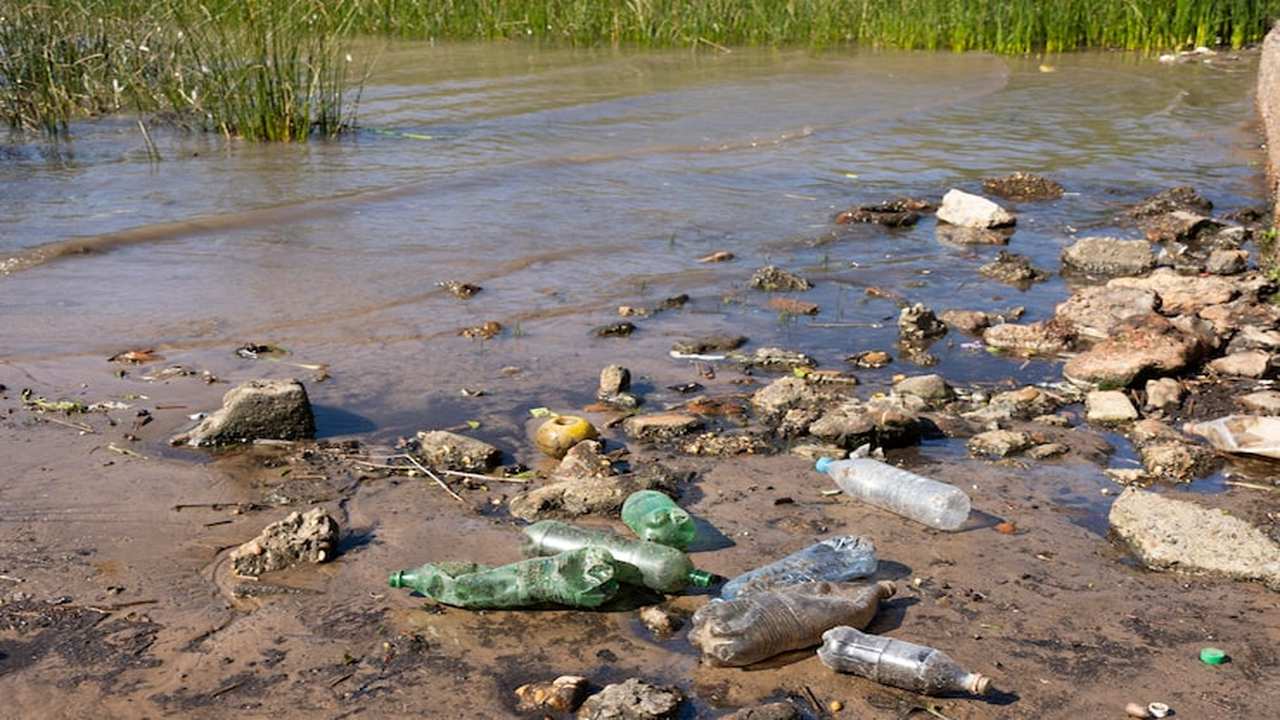 With a mission to protect the Ohio River, Marathon Petroleum led the charge in a monumental cleanup effort, rallying teams from various operations to tackle litter along the riverbanks. In a display of community spirit and environmental stewardship, volunteers filled 80 large bags with debris, showcasing the power of collaboration and dedication. Join us as we delve into how these efforts exemplify the essence of corporate responsibility and local engagement in the pursuit of a cleaner, healthier environment.
With a mission to protect the Ohio River, Marathon Petroleum led the charge in a monumental cleanup effort, rallying teams from various operations to tackle litter along the riverbanks. In a display of community spirit and environmental stewardship, volunteers filled 80 large bags with debris, showcasing the power of collaboration and dedication. Join us as we delve into how these efforts exemplify the essence of corporate responsibility and local engagement in the pursuit of a cleaner, healthier environment.
Corporate Social Responsibility and Environmental Stewardship
The participation of Marathon Petroleum in the Ohio River cleanup exemplifies a strong commitment to corporate social responsibility and environmental stewardship. By actively engaging employees, contractors, and local partners in the cleanup efforts, Marathon Petroleum demonstrates a holistic approach to sustainability that goes beyond regulatory compliance. This dedication to environmental stewardship not only contributes to a cleaner ecosystem but also enhances the company's reputation as a responsible corporate citizen. The involvement of volunteers from various operations, including the Catlettsburg refinery and MPLX Kenova Plant, underscores Marathon Petroleum's integrated approach to addressing environmental challenges at a local level.
The collaboration between Marathon Petroleum and other supporting companies, such as Braskem, AOC, AEP West Virginia, and Kentucky Power, highlights the importance of collective action in promoting environmental sustainability. Through partnerships with organizations like ORSANCO and its nonprofit arm, Foundation for Ohio River Education (F.O.R.E.), Marathon Petroleum leverages its resources and expertise to make a meaningful impact on the communities it serves. This collaborative effort not only amplifies the reach and effectiveness of the cleanup initiatives but also fosters a sense of shared responsibility among stakeholders. By engaging in such initiatives, companies like Marathon Petroleum set a positive example for the industry, inspiring others to prioritize environmental stewardship in their business practices.
Community Engagement and Local Empowerment
The Ohio River cleanup organized by Marathon Petroleum is not just a corporate initiative but a testament to the power of community engagement and local empowerment. By involving volunteers from six states and partnering with organizations like the Ceredo Kenova Rotary, Marathon Petroleum creates a sense of shared purpose and collective responsibility among participants. This grassroots approach to environmental conservation fosters a deeper connection between the company and the communities it operates in, building trust and goodwill among local residents. The provision of boxed lunches by Marathon Petroleum and the Ceredo Kenova Rotary not only sustains the volunteers physically but also symbolizes a gesture of appreciation for their efforts in safeguarding the environment.
The active involvement of Marathon Petroleum interns/co-ops, contractors, and local business partners in the cleanup activities demonstrates a multi-stakeholder approach to community engagement. By mobilizing a diverse group of participants, Marathon Petroleum not only broadens the impact of its environmental initiatives but also creates opportunities for knowledge sharing and skill development. This inclusive approach not only strengthens the social fabric of the communities along the Ohio River but also empowers individuals to take ownership of environmental conservation efforts in their respective regions. Through such collaborative endeavors, Marathon Petroleum reinforces the importance of local engagement in achieving sustainable outcomes for both the environment and the community.
Employee Engagement and Team Building
The participation of Marathon Petroleum employees in the Ohio River cleanup serves as a powerful example of employee engagement and team building within the organization. By involving employees from different departments, including marine, terminal, and pipeline operations, Marathon Petroleum fosters a sense of camaraderie and shared purpose among its workforce. Engaging employees in hands-on environmental activities not only boosts morale and job satisfaction but also instills a sense of pride in contributing to a meaningful cause. The involvement of employees in community service initiatives like the river cleanup not only strengthens their bond with the company but also enhances their sense of belonging and purpose in the workplace.
The collaboration between Marathon Petroleum interns/co-ops, contractors, and local business partners during the cleanup event underscores the importance of cross-functional teamwork and collaboration in achieving common goals. By bringing together individuals with diverse backgrounds and skill sets, Marathon Petroleum creates a dynamic environment where creativity and innovation thrive. The synergy between employees, interns, contractors, and partners not only enhances the efficiency and effectiveness of the cleanup efforts but also cultivates a culture of mutual respect and cooperation within the organization. Through such collaborative endeavors, Marathon Petroleum nurtures a culture of teamwork and excellence that extends beyond the workplace and into the communities it serves.
Conclusion
The Ohio River cleanup spearheaded by Marathon Petroleum exemplifies a pinnacle of corporate responsibility and community engagement, showcasing the transformative power of collective action in environmental stewardship. Through cross-sector partnerships, employee involvement, and grassroots initiatives, Marathon Petroleum sets a gold standard for sustainable business practices, inspiring a ripple effect of positive change. As we reflect on this monumental effort, let us heed the call to prioritize collaboration, transparency, and ethical sourcing in our supply chains, paving the way for a greener, more responsible future for all.